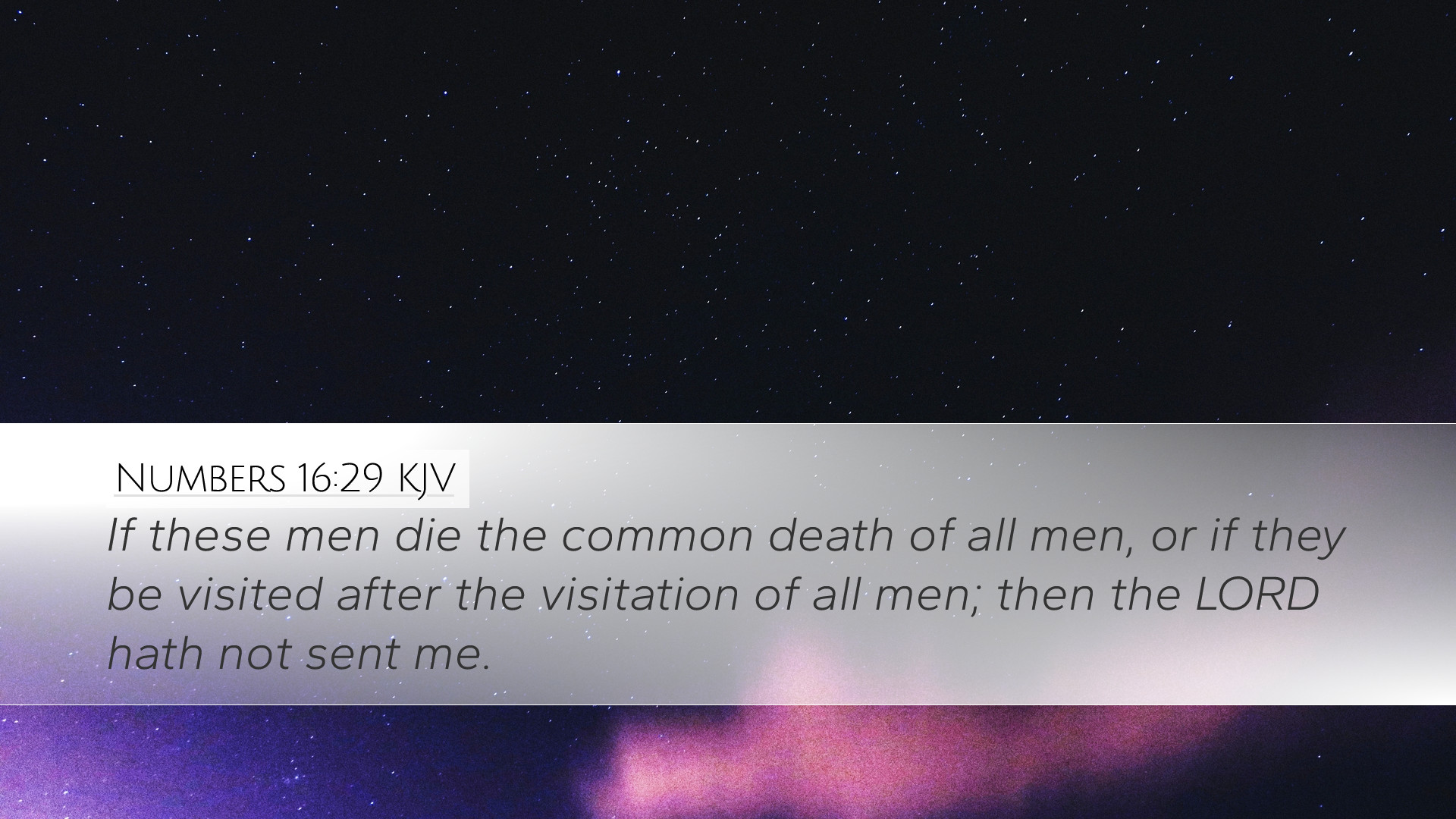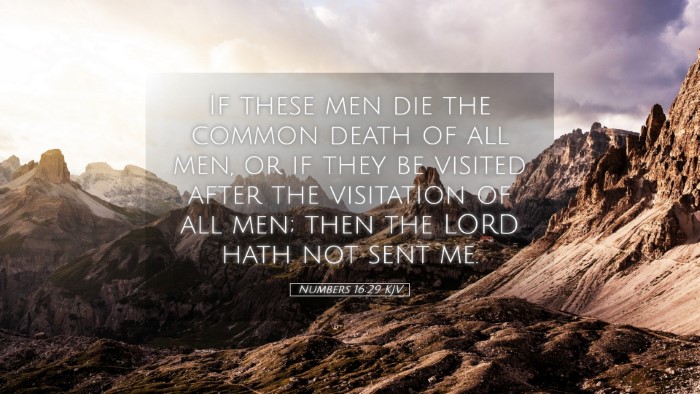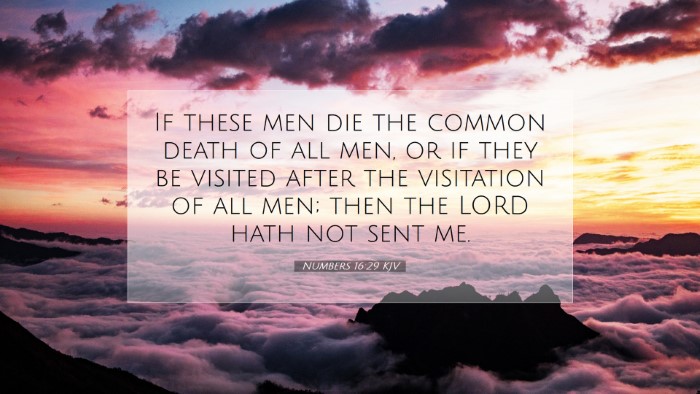Commentary on Numbers 16:29
Verse Context: Numbers 16:29 states, "If these men die the common death of all men, then the LORD hath not spoken by me." This assertion was made by Moses in response to the rebellion of Korah, Dathan, and Abiram, who challenged his leadership and authority.
Introduction
This passage presents a significant moment in the narrative of the Israelites in the wilderness. It highlights themes of divine authority, leadership, and the consequences of rebellion against God's appointed leaders. In this commentary, insights from notable public domain commentators will be synthesized to provide a comprehensive understanding of the text.
Authority and Divine Appointment
Moses’ declaration serves as a powerful testament to his authority as a leader chosen by God. Matthew Henry emphasizes that true leaders are appointed by God and that their authority is derived from divine mandate. He notes the gravity of the situation as Moses stands defensively against accusations, showcasing both his vulnerability and the weight of his responsibility.
Spiritual Leadership:
Albert Barnes elaborates on the nature of spiritual leadership and the necessity for divine confirmation. He asserts that true prophets speak with the authority of God, showcasing the importance of recognizing those whom God has chosen to lead His people. The challenge from Korah and his followers embodies the age-old conflict between divinely sanctioned authority and human rebellion.
The Weight of Rebellion:
Adam Clarke details the consequences of rebellion against God's chosen vessels. He explains that Korah and his peers were not simply opposing Moses; they were fundamentally opposing God’s established order. Clarke asserts that any challenge against divinely appointed leadership is, in essence, a challenge against God Himself.
Evidence of Divine Judgment
The latter part of the verse underscores Moses' prophetic certainty and the object lesson that would follow. If the fate of Korah and his followers mirrored that of the general populace, it would indicate that Moses did not speak on behalf of God. This principle is crucial for discerning the legitimacy of prophetic voices among God’s people.
Miraculous Confirmation:
Matthew Henry reflects on the miraculous events that follow this declaration. He interprets the earth opening to swallow the rebels as a dramatic sign of God’s judgment and a divine endorsement of Moses' leadership. The act serves as a solemn reminder that God’s presence and power validate His chosen leaders.
The Implications for Theological Reflection
This scripture invites profound theological reflection on obedience, authority, and the nature of God's judgment. The implications are far-reaching:
- The Need for Discernment: Believers are called to discern the leaders God has placed over them and to follow their guidance with reverence and respect.
- Understanding Divine Judgment: The perils of rebellion are starkly illustrated, serving as a warning against withholding submission from God’s chosen leaders.
- The Assurance of God’s Presence: For those who follow God’s appointed leaders, there is the promise of God’s guidance and protection.
Theological Application
This passage speaks powerfully across ages. For pastors preaching on this text, it provides an opportunity to emphasize the importance of leadership that aligns with God’s will. Additionally, it serves as a reminder to congregations to approach church leadership with respect, recognizing the divine nature of the roles leaders occupy.
Lessons on Leadership:
From this passage, key lessons on leadership emerge:
- Accountability: Leaders must be accountable to God and His word.
- Servant Leadership: Like Moses, leaders must exhibit humility and a willingness to serve their people.
- Dependence on God: The reliance on God’s confirmation is paramount in leadership, as seen through Moses’ reliance on divine intervention.
Conclusion
Numbers 16:29 encapsulates profound truths about leadership, divine authority, and the serious consequences of rebellion. It poses moral inquiries and ethical standards for leadership within the church, challenging both leaders and followers to seek God’s intent in their relationships. By approaching this text with reverence, we unearth rich insights that pertain not only to historical Israel but also to contemporary faith communities striving to embody God’s principles of leadership.
The weight and significance of this verse serve as a reminder that God’s judgments are serious and that His appointed leaders have a vital role in the journey of faith for all believers.


